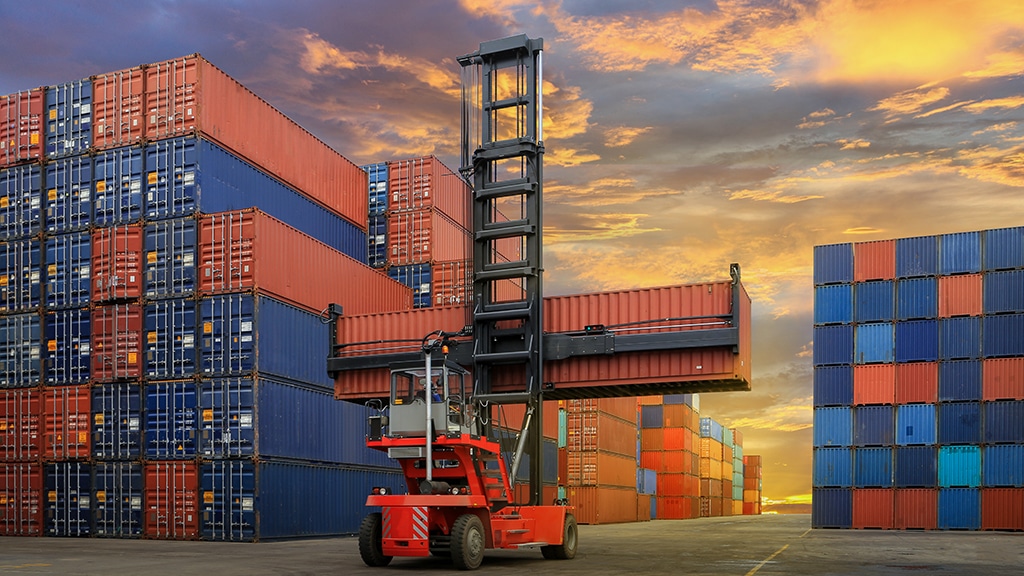In today’s globalized economy, businesses are increasingly sourcing materials and products from international suppliers. While this opens up opportunities for cost savings and access to a wider range of products, it also introduces complexities in managing the total cost of goods, particularly when it comes to import and customs handling. Dynamics 365 Finance and Operations (D365 F&O) offers a robust solution for managing landed costs, helping businesses navigate these challenges effectively.
This article explores what does landed cost mean, its importance, the challenges businesses face in import and export handling, and how Dynamics 365 Finance and Operations can help overcome them.
What is landed cost?
Landed cost refers to the total cost of a product once it has been shipped, received, and made ready for sale. It includes not only the purchase price of the product but also additional costs such as shipping, customs duties, taxes, insurance, and handling fees. Accurately calculating landed cost is crucial for businesses to determine the true cost of goods sold (COGS) and to set appropriate pricing strategies.
For businesses involved in international trade, understanding and managing landed cost is essential for maintaining profitability and ensuring compliance with customs regulations. However, this process can be fraught with challenges, particularly when dealing with complex import and customs procedures.
Common challenges businesses face in import and customs handling
- Complexity of customs regulations
Customs regulations vary widely from country to country and can be highly complex. Businesses must navigate a maze of rules, tariffs, and documentation requirements, which can be time-consuming and prone to errors. Misclassification of goods or incorrect valuation can lead to delays, fines, and even seizure of goods.
- Fluctuating duties and taxes
Duties and taxes are subject to change based on trade agreements, political developments, and other factors. Keeping track of these changes and accurately applying them to the cost of goods can be challenging, especially for businesses that source products from multiple countries.
- Hidden costs
In addition to the obvious costs such as shipping and customs duties, there are often hidden costs associated with importing goods. These can include storage fees, demurrage charges, and costs related to compliance with local regulations. Failing to account for these costs can lead to significant discrepancies in the landed cost calculation.
- Lack of visibility and control
Many businesses struggle with a lack of visibility into the various costs associated with importing goods. This can make it difficult to track expenses in real-time and to make informed decisions about sourcing and pricing. Without a centralized system for managing landed costs, businesses may find themselves relying on manual processes that are both inefficient and error-prone.
- Compliance risks
Non-compliance with customs regulations can result in severe penalties, including fines, shipment delays, and damage to a company’s reputation. Ensuring compliance requires a thorough understanding of the rules and regulations in each country where a business operates, as well as the ability to accurately document and report on import activities.
- Undervalued invoicing in imports
Undervalued invoicing is a common issue in international trade, where the declared value of goods is lower than the actual value to reduce customs duties and taxes. This practice can lead to legal repercussions, including fines and penalties, and can also distort the true landed cost of goods.
- Challenges in shipment measurement & weight discrepancies
Accurate measurement and weight of shipments are crucial for calculating shipping costs and customs duties. Discrepancies in these measurements can lead to incorrect cost calculations, disputes with shipping vendors, and delays in customs clearance.
- Complexity of customs duty calculation
Customs duty calculation can be highly complex, involving multiple factors such as the type of goods, their value, origin, and destination. Errors in duty calculation can result in overpayment or underpayment, both of which can have significant financial implications.
- Impact of HS code declaration on duty rates
The Harmonized System (HS) code is used to classify goods for customs purposes. Incorrect HS code declaration can lead to incorrect duty rates being applied, resulting in either overpayment or underpayment of duties. This can also lead to delays in customs clearance and potential legal issues.
- Demurrage & storage charges by shipping vendors
Demurrage and storage charges can quickly add up if goods are not cleared through customs in a timely manner. These charges can significantly impact the landed cost of goods and need to be carefully managed to avoid unnecessary expenses.
- Container type
The type of container used for shipping can affect the cost and efficiency of the import process. Different container types have different costs associated with them, and choosing the wrong type can lead to increased shipping costs and delays.
- Shipping port
The choice of shipping port can also impact the landed cost of goods. Different ports have different handling fees, customs procedures, and potential for delays. Selecting the most efficient port can help reduce costs and improve the speed of the import process.
- Business monopoly by customs agents & intermediaries
In some regions, customs agents and intermediaries hold a monopoly over the import process, leading to inflated fees and lack of transparency. This can increase the landed cost of goods and create challenges for businesses trying to manage their import operations efficiently.
- Role of blockchain in shipment tracking & transparency
Blockchain technology has the potential to revolutionize shipment tracking and transparency in the import process. By providing a secure and immutable record of transactions, blockchain can help reduce fraud, improve accuracy, and enhance visibility into the supply chain.












